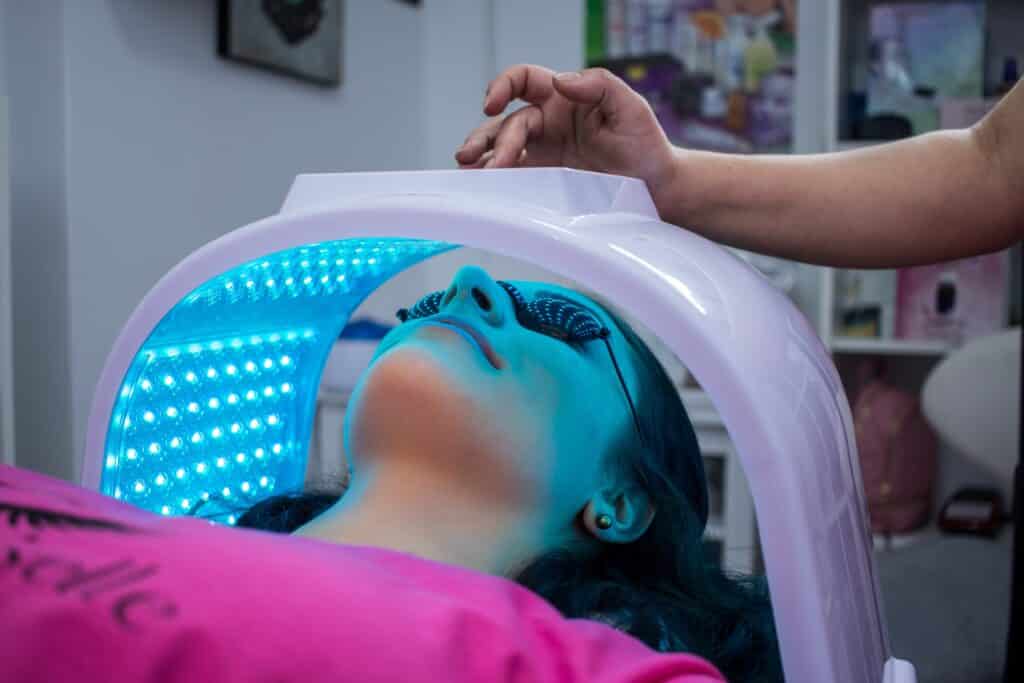Dermatology Clinical Trials – Overview
Dermatology clinical trials are carried out to improve the health of current and future patients suffering from various skin conditions.
These trials test the safety and efficacy of new or improved prescribed products and devices that can be used for treatment.
One in every three people in the United States is affected by skin conditions, making them among the most common and costly health problems. Dermatological diseases contribute significantly to both direct and indirect medical costs, and are among the top causes of non-fatal disability worldwide.
However, participating in a dermatological clinical trial allows getting rid of skin issues while treating the psycho-social aspects of dermatological diseases.

Dermatology Clinical Trials – What Do They Study?
Clinical trials are conducted to advance medical life and improve the lives of people. Through these studies, researchers can test new medicines, devices, and treatments. They also focus on the following:
- Developing the vaccines
- Improving diagnostic techniques
- Finding ways to discover diseases at the early stages
Dermatological clinical trials focus on diseases and conditions that affect hair, nails, and skin. The studies are related to:
- Eczema
- Acne
- Psoriasis
- Rosacea
- Vitiligo
- Melanoma
- Atopic dermatitis
- Skin aging
- Onychomycosis
- Cosmetic surgery
- Epidermolysis bullosa
- Basal cell carcinoma
- Hidradenitis suppurativa
Dermatology Clinical Trials – What Are the Eligibility Requirements?
Every clinical trial has inclusion and exclusion criteria that determine who can participate, based on diagnosis, treatment history, and other health factors. Not all candidates are good for dermatology clinical trials. Therefore, it is important first to check what kind of volunteers the researchers are searching for.
There could be trials that require both healthy participants and those with the condition that is the focus of the study.
Generally, research centers enroll participants with moderate to severe skin conditions that have not responded adequately to existing treatments.
Questions To Ask Before Participating in a Dermatologist Clinical Trial
Before enrolling in a medical study, here are some of the questions that can help you make an informed decision.
- What treatment or drug is being tested?
- How is trial beneficial?
- Who is the organizer of the trial?
- What are the risks involved?
- What would happen if I fell ill?
- Who is responsible for health during the research?
- How long will the study and trial take?
- Would it be necessary to stay in the hospital?
Get all the necessary information about the trial and make sure it is safe for you.
Dermatology Clinical Trials – The Benefits and Risks Involved
Clinical trials offer access to ultra-new skincare treatments. These studies offer a solution for patients suffering from a medical issue that is unable to treat.
Also, a patient can benefit by participating as these trials usually charge no cost or low costs. Additionally, in some cases, volunteers are even compensated for their travel expenses.
The U.S. Food and Drug Administration and institutional review boards monitor trials to ensure participant safety, ethical conduct, and compliance with Good Clinical Practice.
It allows looking after general healthcare where a volunteer can receive a routine medical assessment and optimum care by trained staff members.
Research results bring a positive change in dermatology care with life-changing medical discoveries.
It makes a participant feel more empowered by dramatically improving other people’s lives and making a big difference in Dermatology advancements.
Benefits aside, there are certain risks associated with dermatology clinical trials. The biggest one is the risk of adverse reactions. Further, these studies involve a significant time commitment.
The goal is to develop an effective and safe treatment for a certain skin condition; therefore, these trials are not for someone who does not have time to spare.
Dermatology Clinical Trials – Where to Participate?
Clinical trials are not for everyone. However, it can be a great option for those who are out of options. There are myriad medical institutions conducting dermatology clinical trials.
Here are some of the sources that help you find a dermatology clinical trial.
1. UPMC
UPMC’s Department of Dermatology currently offers clinical trials for eczema, psoriasis, and other skin conditions, with participation at no cost to patients. To learn about dermatology clinical trials, visit https://www.upmc.com/services/dermatology/department-of-derm/clinical-trials
2. Windsor Dermatology
Windsor Dermatology, now part of Schweiger Dermatology Group, actively runs trials for psoriasis, eczema, and other skin disorders to advance dermatology research.
3. Mount Sinai
Mount Sinai conducts dermatology clinical trials for a wide range of conditions, including eczema, vitiligo, alopecia areata, skin cancer, and cutaneous lymphoma. For more information, visit https://www.mountsinai.org/clinical-trials
4. UNC School of Medicine
The Dermatology Clinical Trials Unit (DCTU) at UNC conducts studies for conditions like acne, eczema, nail fungus, psoriasis, and autoimmune blistering diseases in children and adults. For more information, visit https://www.med.unc.edu/derm/clinical-trials/
To search for active dermatology clinical trials, visit CenterWatch.com or ClinicalTrials.gov. Both list current studies by condition, location, and sponsor
To search for active dermatology clinical trials, one can also visit Center Watch and ClinicalTrials.gov.

Conclusion
Participating in a dermatology clinical trial is a good option if you suffer from an untreated skin condition. The new drug or treatment might let you experience relief.
There can be certain requirements to qualify, and the studies might involve risks. Therefore, do your research, take a suggestion from your physician and choose wisely.
See Also